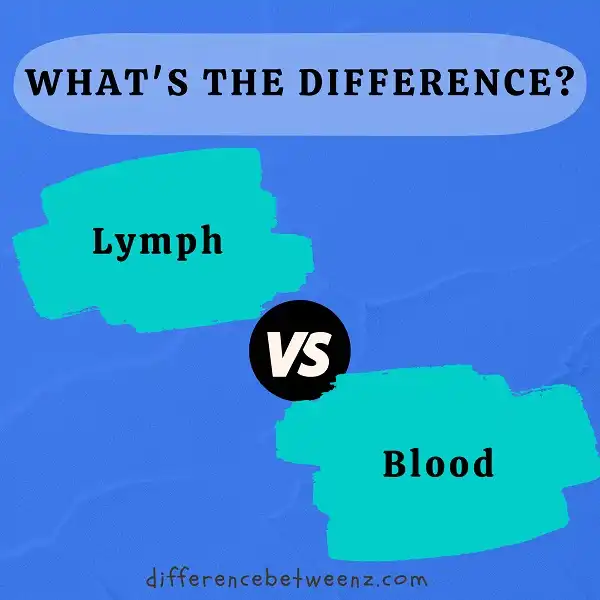When most people think of the body’s circulatory system, they think of blood. But there is another component to this system that is often overlooked: lymph. Though it doesn’t carry oxygen as blood does, lymph plays a vital role in keeping the body healthy. In this blog post, we’ll take a closer look at the difference between lymph and blood, and explore the functions of each component.
What is Lymph?
- A lymph is a clear, colorless fluid that carries white blood cells throughout the body. Lymph is similar to blood plasma, but it doesn’t contain red blood cells. Lymph vessels are located just beneath the skin’s surface and connect to lymph nodes, which are small bean-shaped organs that filter lymph fluid and store white blood cells. Lymph nodes are located throughout the body, including the neck, armpits, groin, and chest. Lymph flows through the lymph vessels and into the lymph nodes, where it is filtered. Lymphocytes, a type of white blood cell, attack and destroy harmful bacteria, viruses, and other foreign substances in the lymph fluid. The filtered lymph fluid then flows back into the bloodstream.
- Lymph nodes play an important role in the immune system by filtering lymph fluid and storing white blood cells. Lymph nodes can become swollen if they are fighting an infection or if cancerous cells are present. Swollen lymph nodes usually indicate that something is wrong with the immune system. Lymphoma is a type of cancer that develops in the lymphocytes of the lymph nodes. Treatment for lymphoma usually involves chemotherapy or radiation therapy.
What is Blood?
- Blood is a bodily fluid that delivers necessary substances to the body’s cells, tissues, and organs. These substances include oxygen, nutrients, hormones, and antibodies. Blood also removes metabolic waste products and carbon dioxide from the body.
- The average person has about 5 liters of blood, which is made up of plasma, red blood cells, white blood cells, and platelets. Plasma is the largest component of blood, and it is mostly water with dissolved proteins, sugars, electrolytes, hormones, and vitamins. Red blood cells are responsible for transporting oxygen from the lungs to the body’s tissues. White blood cells protect the body against infection. Platelets are involved in clotting and healing.
- Blood plays an essential role in maintaining homeostasis within the body, and it is constantly circulated through the cardiovascular system. The heart pumps blood through a network of arteries and veins. Arteries carry oxygen-rich blood away from the heart while veins return oxygen-poor blood back to the heart. To ensure that proper circulation occurs, valves within the veins prevent blood from flowing backward. Smaller vessels called capillaries connect arteries to veins and provide an area for gas exchange to occur between the blood and tissues.
Difference between Lymph and Blood
Lymph and blood are both bodily fluids that play essential roles in the body. Lymph is a clear fluid that carries white blood cells and other immune cells throughout the body. Blood, on the other hand, is a red fluid that contains red blood cells, white blood cells, platelets, and plasma. While both fluids are important for the body, they have different functions. Lymph helps to fight infection and transport nutrients, while blood helps to carry oxygen and remove waste from the body. In addition, lymph is the Network of the Lymphatic System whereas blood is Transport System. Lymph is mainly composed of water whereas blood is mainly composed of plasma. Lymph nodes are present in between the networks of lymph vessels which help in producing antibodies whereas No nodes are present in between the networks of blood vessels. Lymph flow is unidirectional from capillaries to veins whereas Blood flow is bidirectional from arteries to veins. Lymph flows into blind-ended sacs called lymphatics whereas Blood flows into heart chambers. Finally, interstitial fluid enters lymphatics whereas venous return enters heart chambers.
Conclusion
Lymph and blood are both essential for keeping the body functioning properly, but they have different purposes. Understanding the difference between lymph and blood can help you make sure your body is getting the nutrients it needs.


